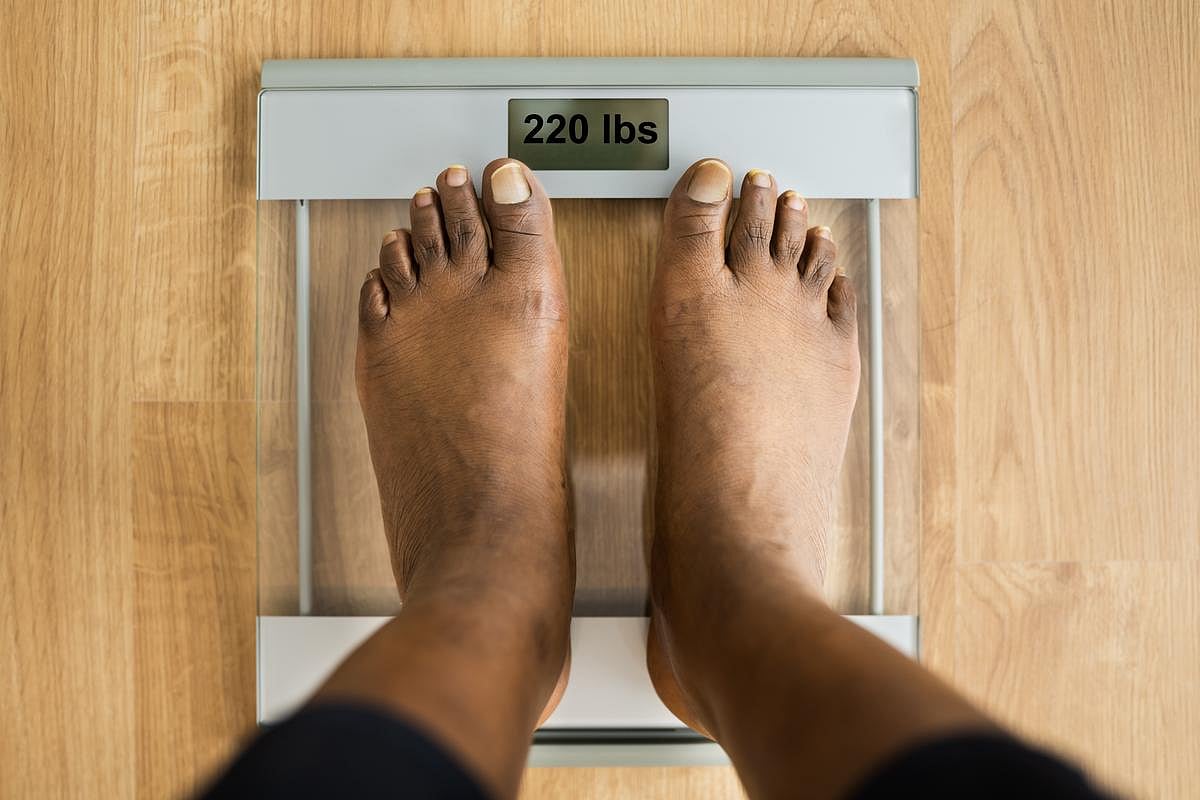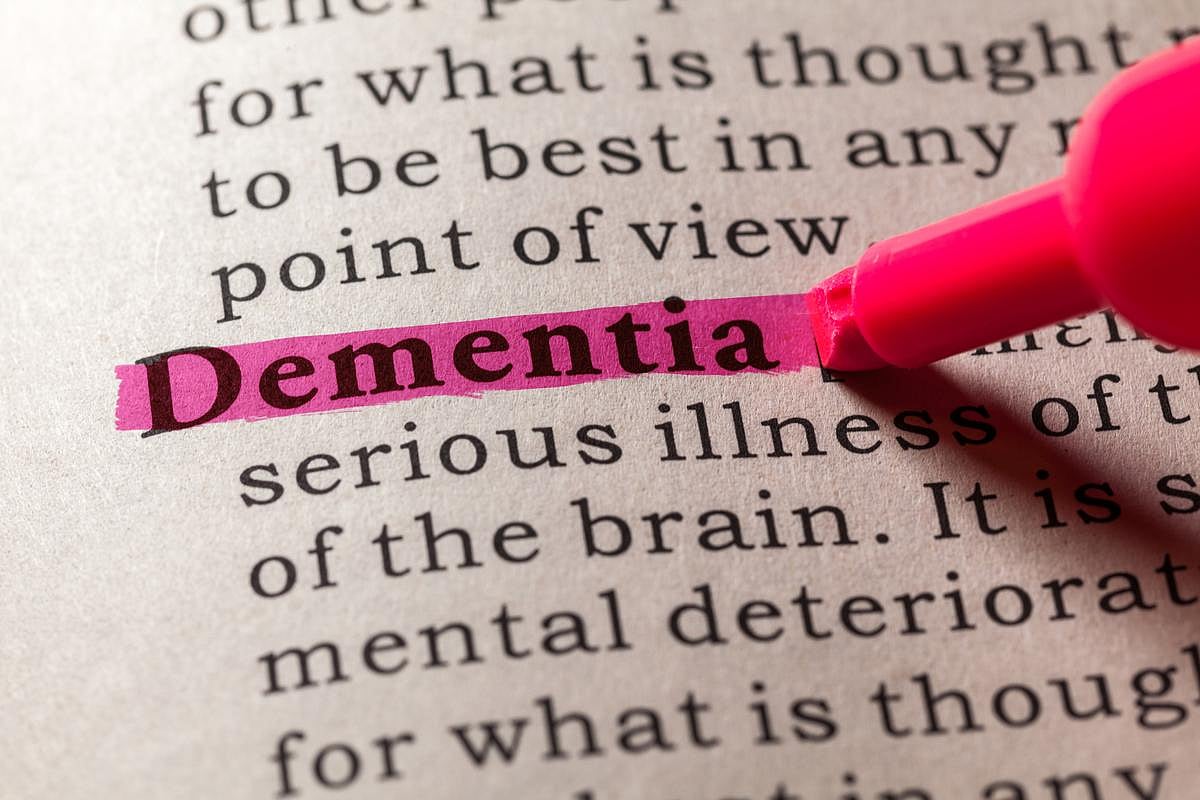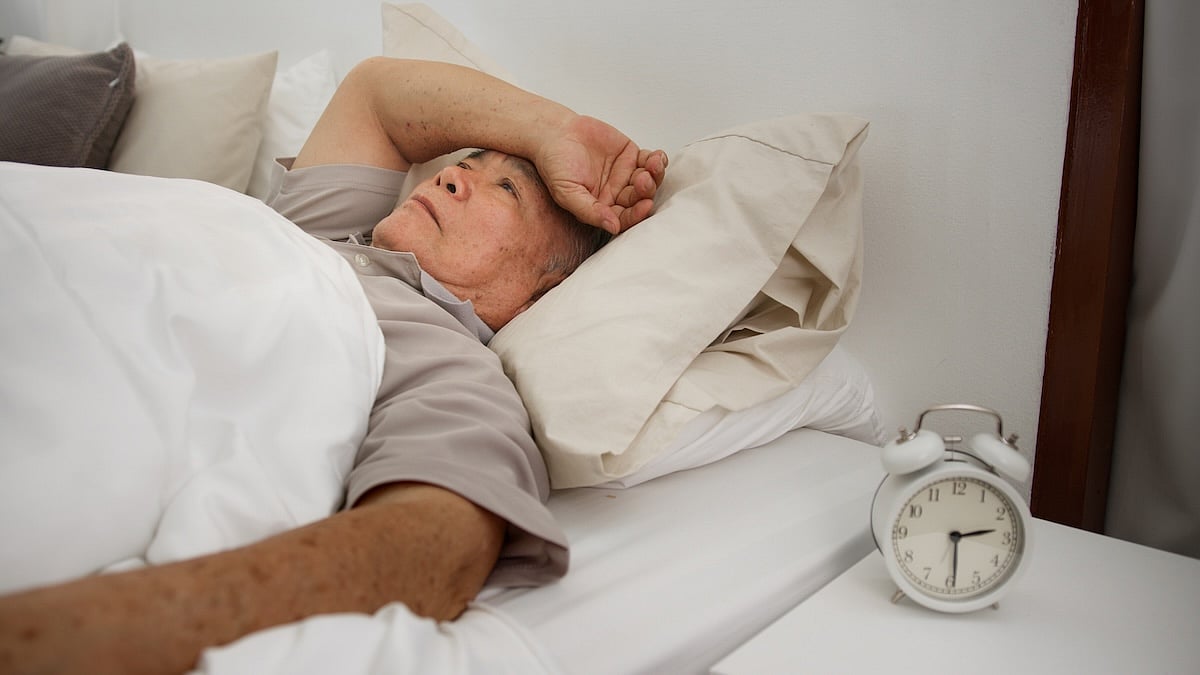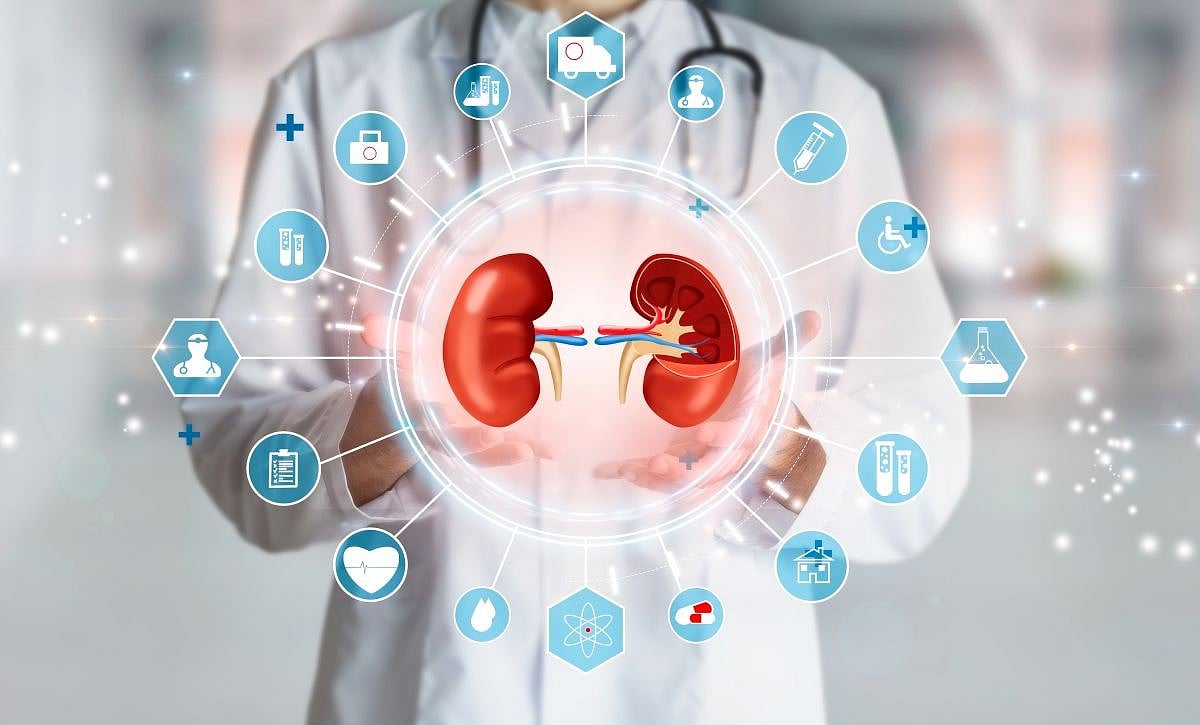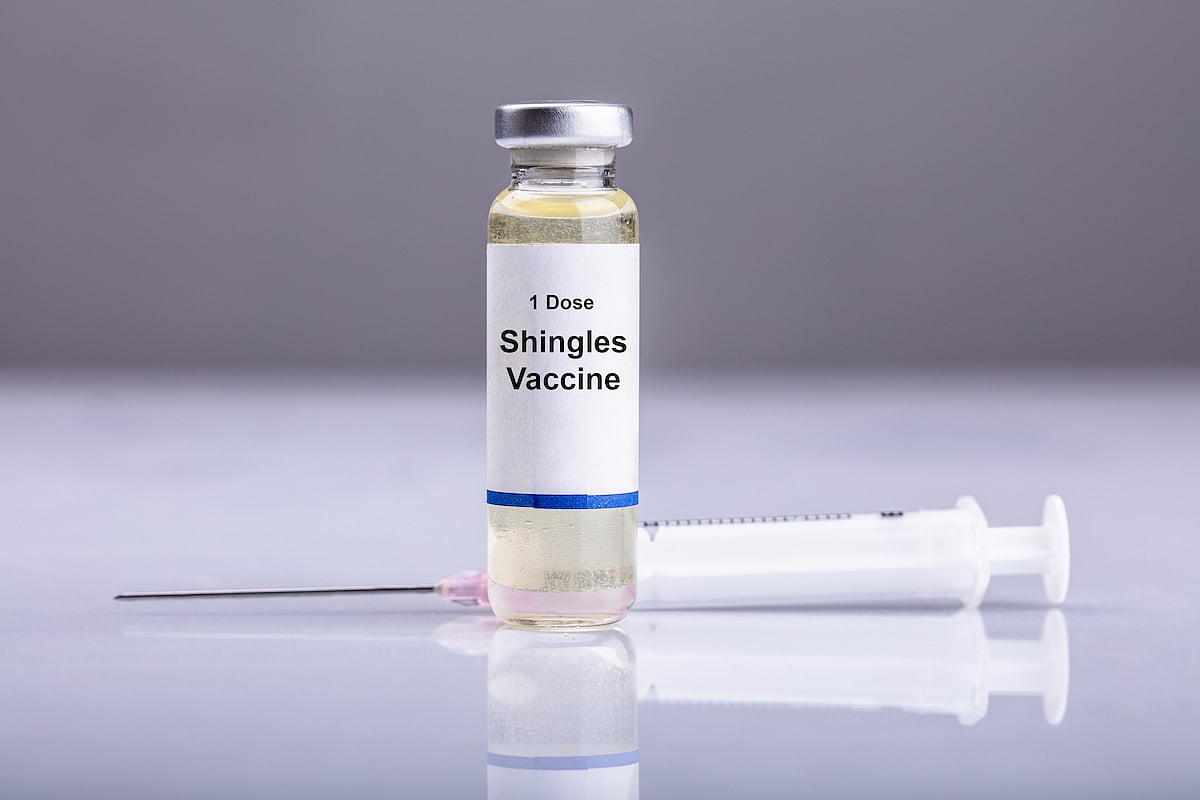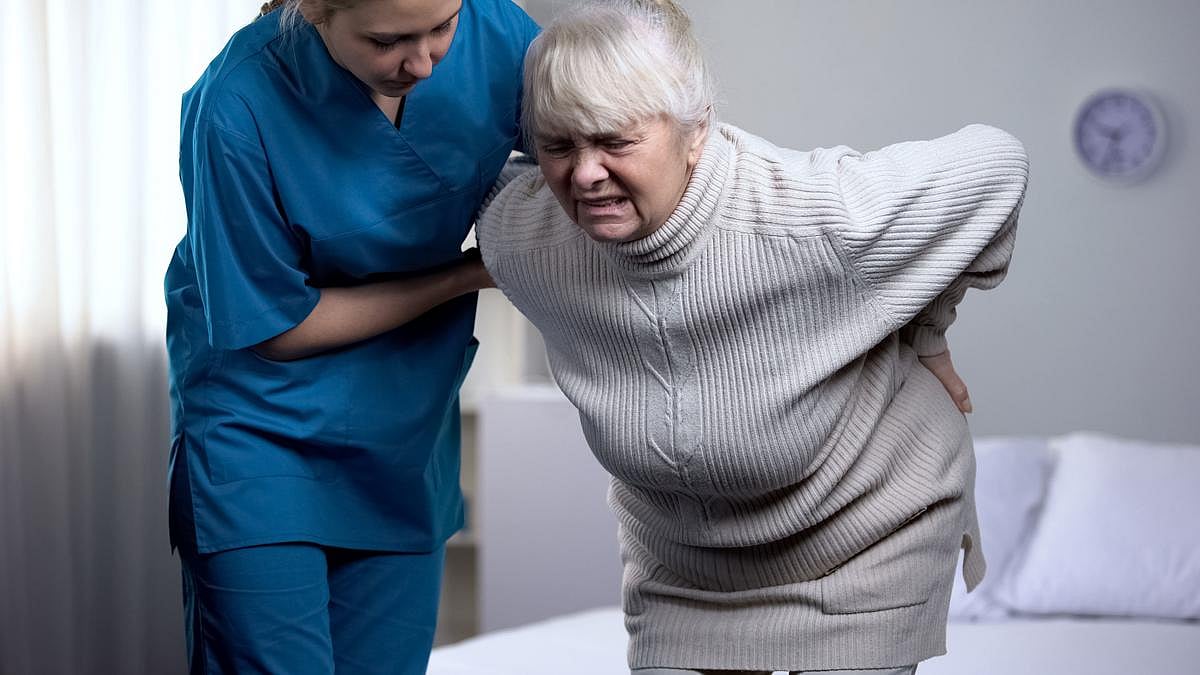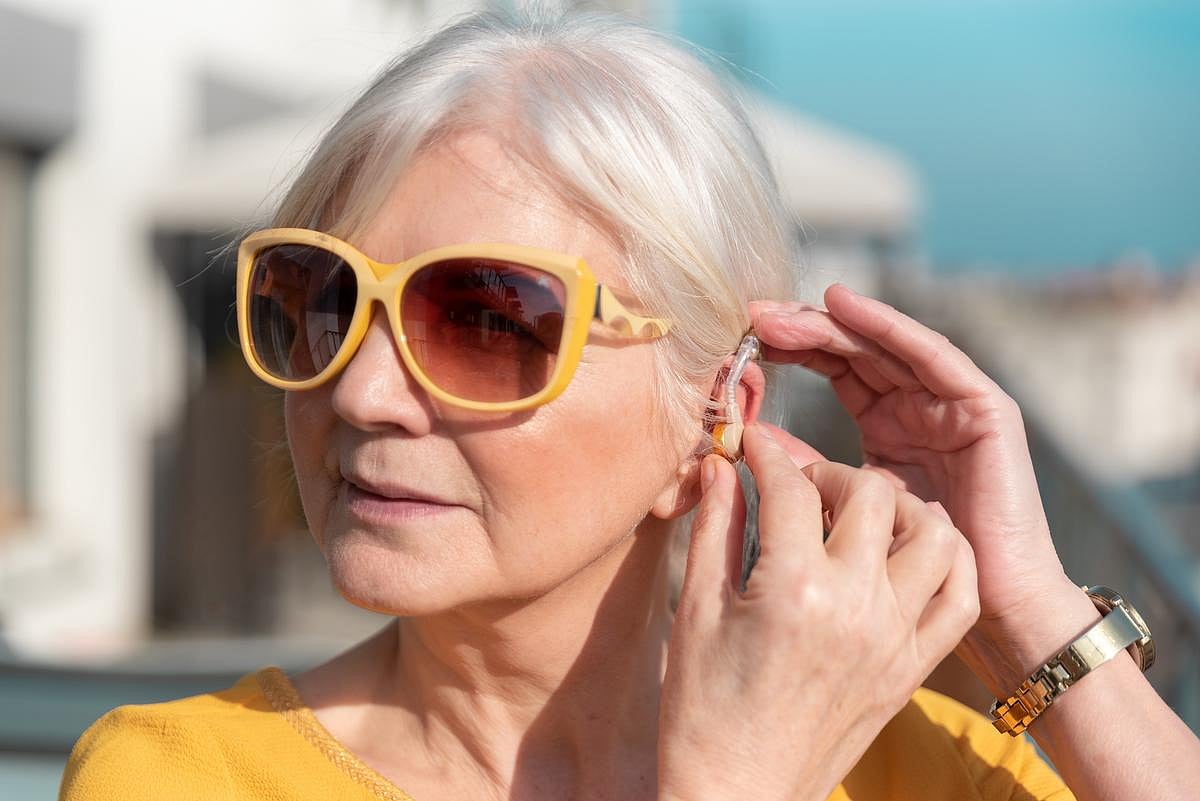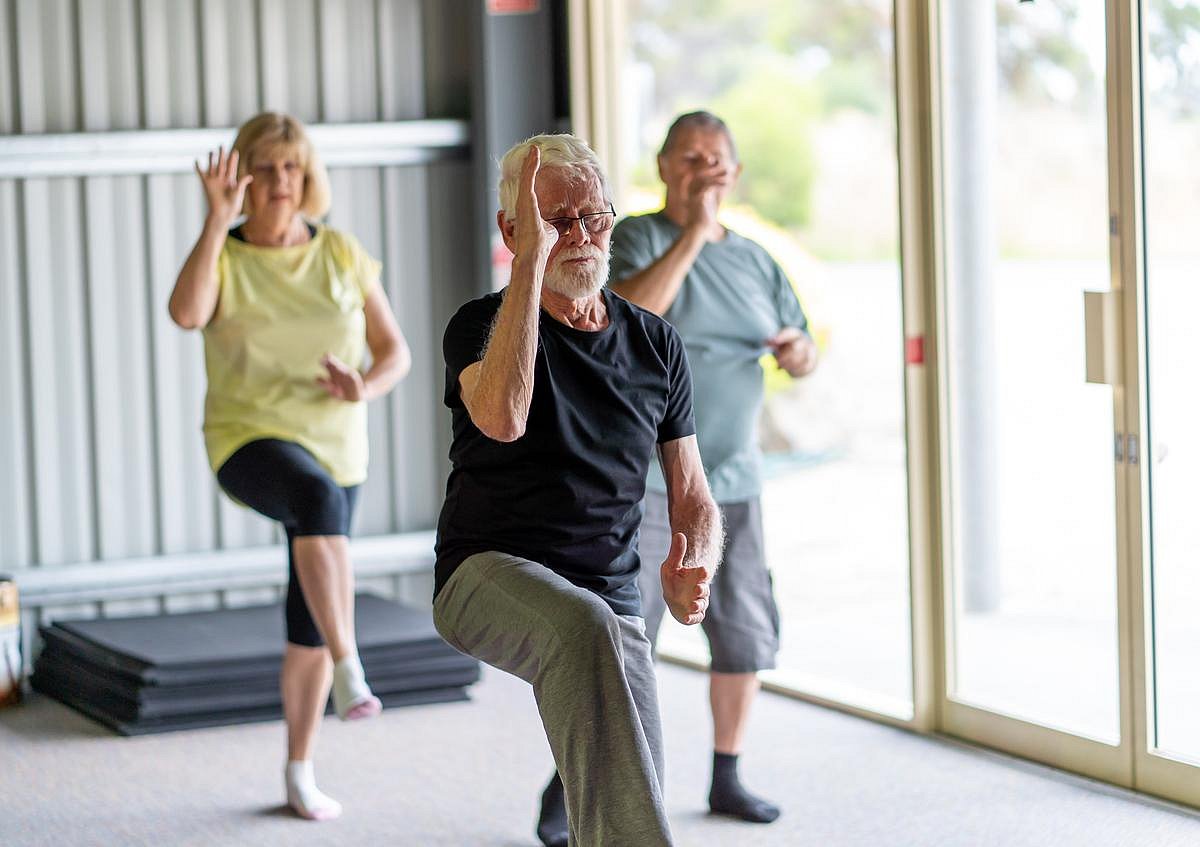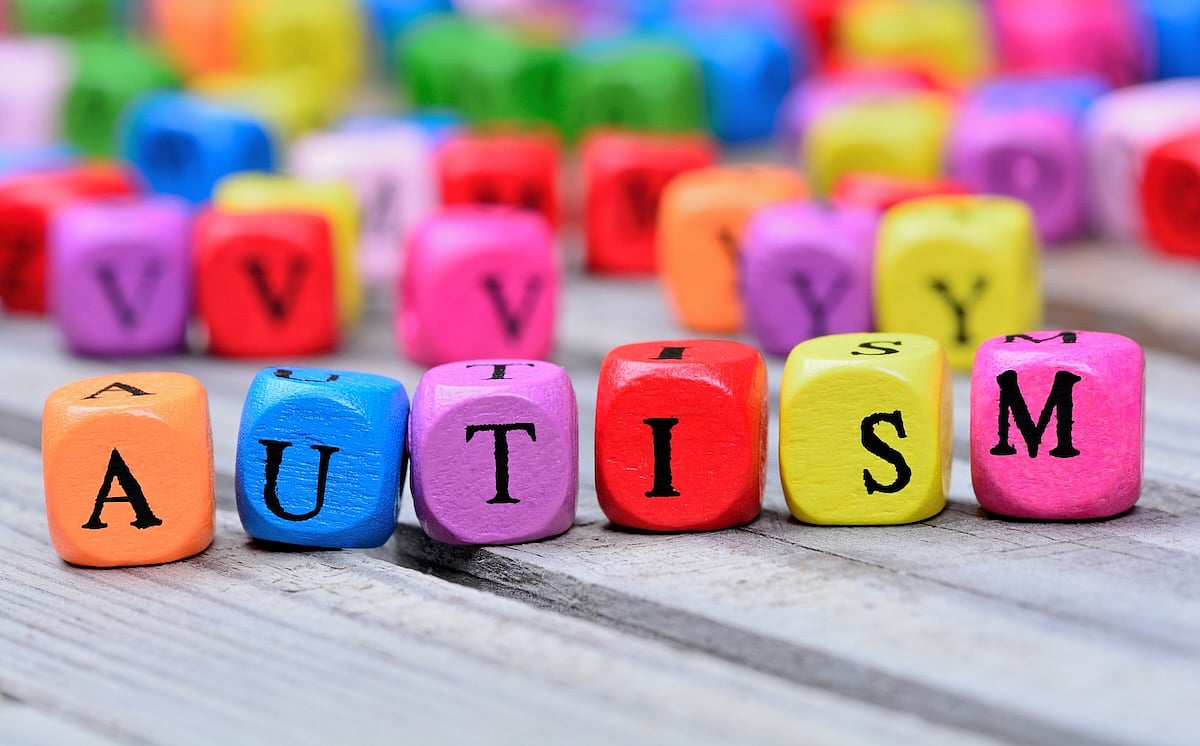Get Healthy!
452 Results for search "Dementia".
Health News Results - 452
"Mommy brain," the brain fog that accompanies pregnancy and the first few weeks after delivery, is real, but new research suggests there’s a long-term benefit: A much sharper mind in later life.
Researchers at the University of California, Los Angeles have linked pregnancy and breastfeeding to stronger cognitive abilities in postmenopausal women.
The study — publis...
- Deanna Neff HealthDay Reporter
- |
- February 11, 2026
- |
- Full Page
Imagine you’re driving down the street when, out of nowhere, a skateboarder rolls into your path.
You’re looking straight ahead, but can your brain spot the movement in your side vision fast enough for you to hit the brakes?
That split-second moment depends on something called visual processing speed, or how quickly your brain reacts to what’s happening around you,...
- I. Edwards HealthDay Reporter
- |
- February 10, 2026
- |
- Full Page
A few cups of coffee or tea each day can help your brain age more gracefully, a new study says.
About two to three cups of caffeinated joe — or one to two cups of tea — reduced dementia risk and slowed brain aging, researchers reported Feb. 9 in the
Larry Duncan valued driving as part of his independence.
But Duncan — a retired business owner from Pinehurst, North Carolina — started to become more nervous behind the wheel prior to his diagnosis with Alzheimer’s disease in 2023.
“Larry was fine driving in familiar areas, but in new places where he had to make quick decisions, he became anxious,” his...
- Dennis Thompson HealthDay Reporter
- |
- January 29, 2026
- |
- Full Page
Obesity and high blood pressure are directly linked to a person’s risk of dementia, a new study reports.
People’s odds of developing dementia can be as much as doubled if they have a high body mass index (BMI), researchers reported Jan. 22 in
Depression in old age could be an early sign of serious brain disease, a new study says.
Depression occurs more often and earlier in seniors who go on to develop Parkinson’s disease or Lewy body dementia, researchers recently reported in the journal
- Dennis Thompson HealthDay Reporter
- |
- January 15, 2026
- |
- Full Page
Some seniors are loathe to don a hearing aid, worried that the devices will be a hassle or make them look old.
But that hearing aid might help them avoid dementia, a new study says.
...
- Dennis Thompson HealthDay Reporter
- |
- January 15, 2026
- |
- Full Page
Many seniors with dementia are being put at risk by brain-altering medications linked to falls, confusion and hospitalization, a new study says.
In all, 1 in 4 Medicare-covered seniors with dementia have been prescribed drugs like antipsychotics, barbiturates and benzodiazepines, even tho...
- Dennis Thompson HealthDay Reporter
- |
- January 13, 2026
- |
- Full Page
Sleep problems might be an early warning sign of dementia, a new study says.
Circadian rhythms that are weaker and more fragmented are tied to an increased risk of dementia, researchers reported Dec. 29 in the journal Neurology.
In fact, people with weak circadian rhythms have a more than doubled risk ...
- Dennis Thompson HealthDay Reporter
- |
- January 2, 2026
- |
- Full Page
Depression in middle age has previously been linked to an increased risk of dementia.
But this relationship appears to be driven by a small cluster of six specific symptoms, rather than by depression overall, according to new research in
Cheese is frequently featured in holiday gatherings, whether it’s grandma’s cheese ball, a fancy baked Brie or a cheese-laden gift basket.
Who knew all these holiday treats might be saving people’s brain health?
Eating more high-fat cheese and high-fat cream might be linked to a lower risk of dementia, according to a new study published Dec. 17 in the journal <...
- Dennis Thompson HealthDay Reporter
- |
- December 18, 2025
- |
- Full Page
Your brain health might be linked to how well your kidneys are working, a new study says.
People with impaired kidney function have higher levels of proteins in their blood that are linked to Alzheimer’s disease, researchers reported Dec. 4 in th...
- Dennis Thompson HealthDay Reporter
- |
- December 4, 2025
- |
- Full Page
Listening to your favorite singers may do more than lift your mood — it could also protect your brain.
A new study from Australian researchers found that older adults who regularly listened to music had a 39% lower risk of developing dementia compared to those who did...
- I. Edwards HealthDay Reporter
- |
- November 14, 2025
- |
- Full Page
A spinal cord injury might be only the beginning of a person’s health woes, according to a new study.
People who’ve suffered spinal cord injuries are more likely to develop an array of chronic health problems, researchers reported Nov. 4 in
Faulty waste clearance in the brain could be contributing to dementia, a new study says.
Impaired movement of cerebrospinal fluid — the clear liquid that cushions and cleans the brain — predicted people’s risk of dementia later in life, researchers reported Oct. 23 in the journal Alzheimer&r...
- Dennis Thompson HealthDay Reporter
- |
- October 27, 2025
- |
- Full Page
Hospice drugs commonly handed out to people with Alzheimer’s disease and dementia might be hastening their deaths, a new study says.
Benzodiazepines and antipsychotics given to hospice patients with dementia appear to increase their risk of earli...
- Dennis Thompson HealthDay Reporter
- |
- October 16, 2025
- |
- Full Page
Seniors who get a concussion are more likely to develop dementia or falter as they age, a new study says.
Older folks who suffered a traumatic brain injury (TBI) had a higher risk of dementia, requiring home care services or admission to a long-term care facility...
- Dennis Thompson HealthDay Reporter
- |
- October 7, 2025
- |
- Full Page
Drinking any amount of alcohol likely increases a person’s risk of dementia, a new study says.
Even light drinking — once viewed as protective — is unlikely to lower dementia risk, and that risk increases with the quantity of alcohol a person consumes, researchers repor...
- Dennis Thompson HealthDay Reporter
- |
- September 24, 2025
- |
- Full Page
Your beauty rest might be protecting your brain health as well, a new study says.
Seniors with chronic insomnia might experience a faster decline in their memory and thinking skills as they age, researchers reported today in the journal
Just like their human counterparts, cats may act cranky or confused and have trouble sleeping as they age.
They may even yowl more than usual at night.
These, researchers say, are dementia-like behaviors that may owe to an accumulation of plaques in their brain, just like those in people with
Having a sense of purpose in life is not only personally fulfilling, but might also protect your brain against the ravages of dementia, a new study says.
People who reported a higher sense of purpose in life had about 28% lower odds of mild cognitive impairment or dementia, researchers report in the October issue of the
Want to keep your brain healthy as you age?
Regularly volunteer some of your time to your community, neighborhood, friends or family, a new study suggests.
People who regularly lend a hand slow their rate of aging-related brain decline by 15% to 20%, researchers report in the October issue of the journal
It takes an average of three-and-a-half years for typical dementia symptoms to lead to a diagnosis, a new report finds.
Diagnosis often comes even later for early-onset dementias.
Speeding up the process is important, because “timely diagnosis can improve access to treatments...
- HealthDay Reporter
- Ernie Mundell
- |
- July 29, 2025
- |
- Full Page
Insulin delivered by nasal spray might be a potential treatment for Alzheimer’s disease, a new study says.
An insulin nasal spray effectively reached key memory regions in the brains of a small group of older adults, researchers reported July 23 ...
- HealthDay Reporter
- Dennis Thompson
- |
- July 24, 2025
- |
- Full Page
Walkers don’t need to march 10,000 steps a day to gain substantial health benefits, a comprehensive new evidence review has concluded.
Instead, getting just 7,000 steps a day appears to be most effective in reducing a person’s risk of death and chronic illness, researchers reported today in
Two-thirds of nieces and nephews caring for an aging relative with dementia never expected to wind up with that responsibility, a recent small-scale study says.
These caregivers say they either gradually fell into the role, or had it forced upon them by family circumstances...
- HealthDay Reporter
- Dennis Thompson
- |
- July 18, 2025
- |
- Full Page
A drug used to treat seizures, nerve pain and restless leg syndrome might be linked with increased risk of dementia, a new study says.
Regular gabapentin use appeared to increase risk of dementia by 29% and mild cognitive impairment (MCI) by 85%, researchers reported July 10 in the journal
Some folks won’t use hearing aids because they’re worried the devices will make them look old or get in the way of their social life.
Nothing could be farther from the truth, a new evidence review says.
Hearing aids dramatically improve a person’s social engagement ...
- HealthDay Reporter
- Dennis Thompson
- |
- July 3, 2025
- |
- Full Page
A new AI tool can help doctors hone in on a patient’s particular type of dementia, including Alzheimer’s disease, a new study says.
The AI tool, StateViewer, helped researchers identify a person’s dementia type in 88% of cases, accord...
- HealthDay Reporter
- Dennis Thompson
- |
- July 1, 2025
- |
- Full Page
Your address might influence your risk for dementia, a new study says.
People living in poor neighborhoods appear to be more likely to have biological risk factors for inflammation and Alzheimer’s disease, researchers reported June 25 in the jour...
- HealthDay Reporter
- Dennis Thompson
- |
- June 30, 2025
- |
- Full Page
Caring for your emotional health might also help keep your memory sharp, a new study says.
People with higher levels of well-being have a reduced risk of memory loss in middle age, according to a new study published June 19 in the journal
People caring for people with dementia might face future risk with their own brain aging due to lifestyle factors, a new study says.
Nearly 3 in 5 dementia caregivers (59%) have at least one risk factor that increases their own chances of developing dementia over time, acco...
- HealthDay Reporter
- Dennis Thompson
- |
- June 17, 2025
- |
- Full Page
A person’s microbiome – the bacteria naturally living in the mouth and gut – might contribute to Parkinson’s disease, a new study says.
Specific changes in these bacteria are associated with cognitive decline in Parkinson’s, researchers reported June 9 in the journal Gut Microbes...
- HealthDay Reporter
- Dennis Thompson
- |
- June 13, 2025
- |
- Full Page
A hallmark of accelerated aging appears to be linked to an increased risk of dementia and stroke, a new study says.
Shorter telomere length in a person’s white blood cells is associated with the two brain diseases, researchers reported June 11 in the...
- HealthDay Reporter
- Dennis Thompson
- |
- June 12, 2025
- |
- Full Page
Want to reduce your risk of dementia and Alzheimer’s disease?
Get on your bike and ride, a new study recommends.
Biking regularly for transportation appears to lower risk of dementia by 19% and Alzheimer’s by 22%, according to results...
- HealthDay Reporter
- Dennis Thompson
- |
- June 11, 2025
- |
- Full Page
It’s never too late to start eating right as a means of protecting your brain health, a new study says.
People who improved their healthy eating in middle-age had a 25% lower risk of lower risk of dementia, compared to those whose diets got worse, according to finding...
- HealthDay Reporter
- Dennis Thompson
- |
- June 2, 2025
- |
- Full Page
Heart disease, strokes and diabetes contribute to many dementia cases in the United States, but the risk is not equal everywhere, a new study says.
Overall, more than a third (37%) of U.S. dementia cases are linked to eight conditions: diabetes, heart failure, atrial fibril...
- HealthDay Reporter
- Dennis Thompson
- |
- May 29, 2025
- |
- Full Page
Difficulty sleeping after a mild stroke could be a sign of continuing brain health problems in some people, a new study says.
Stroke victims who spent more time in bed struggling to sleep had lower scores on tests of thinking and memory skills, researchers reported in the journal Neurology.
These patie...
- HealthDay Reporter
- Dennis Thompson
- |
- May 29, 2025
- |
- Full Page
Sleep apnea could be costing you brain power and increasing your risk of dementia and Alzheimer’s disease, a new study...
- HealthDay Reporter
- Dennis Thompson
- |
- May 8, 2025
- |
- Full Page
People whose bodies are aging faster could be more likely to develop dementia than those with normal or slower aging, a new study says.
Folks with advanced biological age are about 30% more likely to develop dementia, compared to those whose bodies have aged closer to how long they&rsquo...
- HealthDay Reporter
- Dennis Thompson
- |
- May 1, 2025
- |
- Full Page
People with autism do not appear to be at greater risk of age-related brain decline, a new study says.
Older people with autistic traits have no differences when it comes to spatial working memory, which helps folks remember and use information about where things are and how they are arranged, resea...
- HealthDay Reporter
- Dennis Thompson
- |
- April 29, 2025
- |
- Full Page
Risk factors for dementia could start taking their toll as early as a person’s 20s and 30s, a new study says.
Younger adults who carry known risks for dementia performed worse on memory and thinking tests between ages 24 and 44, researchers report in the May issue of the journal The Lancet: Regional He...
- HealthDay Reporter
- Dennis Thompson
- |
- April 25, 2025
- |
- Full Page
Singing can be a balm for the soul, but does it still soothe if a person is singing alone in a virtual crowd?
Yes, says a pandemic-era study that tested whether seniors received any emotional or mental benefit from participating in a virtual choir during COVID-19 lockdowns.
Isolated seniors sai...
- HealthDay Reporter
- Dennis Thompson
- |
- April 24, 2025
- |
- Full Page
Early menopause could be a warning sign for future age-related brain decline, a new study says.
Women who entered menopause before 40 had a greater cognitive decline than women who entered menopause after 50, according to a study published recently in the journal
- HealthDay Reporter
- Dennis Thompson
- |
- April 23, 2025
- |
- Full Page
Middle-aged folks and seniors whose weed use lands them in the hospital are at higher risk for developing dementia within a matter of years, a new study says.
An ER visit or hospitalization due to cannabis use is associated with a 72% increased risk of a dementia diagnosis within five ye...
- HealthDay Reporter
- Dennis Thompson
- |
- April 16, 2025
- |
- Full Page
It’s a common notion that overuse of smartphones, tablets, laptops and other digital devices is rotting people’s minds.
But the opposite appears to be true – regular use of digital technology seems to protect the brain against decline and dementia, at leas...
- HealthDay Reporter
- Dennis Thompson
- |
- April 15, 2025
- |
- Full Page
From slurping daily spoonfuls of fish oil to giving up alcohol, lifting weights and playing word games, older Americans think just about anything that might keep their brains sharp is worth a try.
After all, the risk of dementia -- a loss of memory, problem-solving and thinking abilities that often equals an end to independence -- rises sharply with age. By itself, the most common dementi...
- HealthDay Reporter
- Carole Tanzer Miller
- |
- April 12, 2025
- |
- Full Page
Air pollution might be harming the brains of seniors, increasing their risk of dementia and cognitive decline, a new study says.
Exposure to nitrogen dioxide and fine particle pollution is linked to lower scores in key thinking and memory skills, particularly language abili...
- HealthDay Reporter
- Dennis Thompson
- |
- April 10, 2025
- |
- Full Page
Heavy drinkers have an increased risk of developing brain lesions associated with memory and thinking problems, a new study says.
Folks who imbibe eight or more alcoholic drinks a week have an increased risk of hyaline arteriolosclerosis, or a thickening and narrowing of the small arteries that f...
- HealthDay Reporter
- Dennis Thompson
- |
- April 10, 2025
- |
- Full Page





